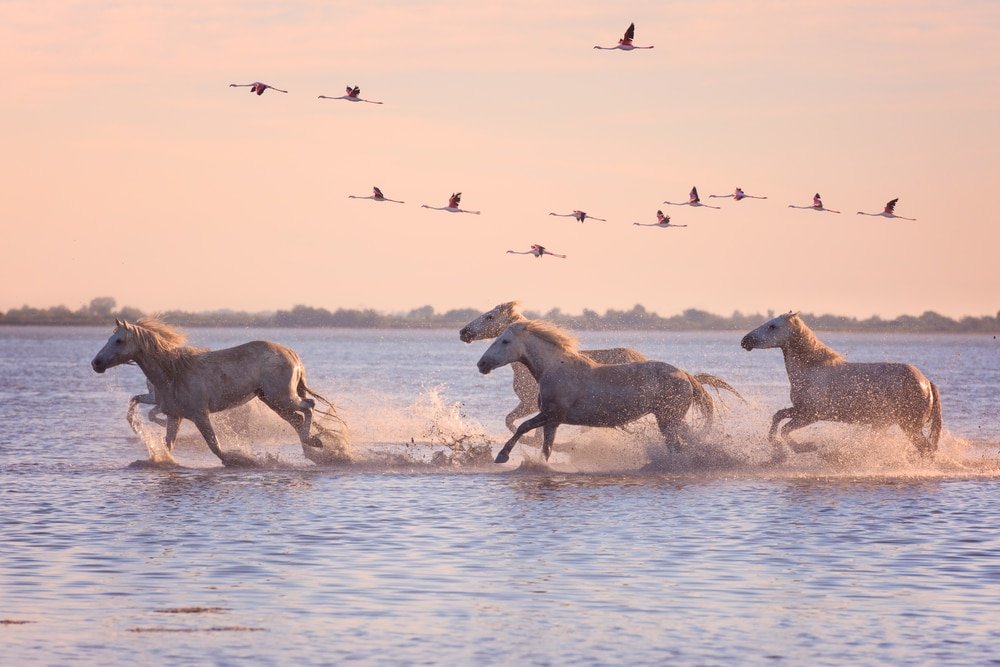The Camargue or Camargue is a breed of horse originating from the Camargue, located on the south coast of France.It is considered a symbol of freedom and tradition because of the antiquity hanging from its back, is that the Camargue was used with the Phoenicians and Romans.Armies Has a special ability to survive in extreme conditions.
At first it may seem like a beautiful white horse, but the Camargue is actually a black horse, when they are young we can appreciate this dark tone, although they develop a white dress when they reach sexual maturity.
- They are not especially large.
- They measure between 1.
- 35 and 1.
- 50 meters high on the cross.
- But the Camargue has a great strength.
- Enough to be mounted by adult riders.
- It is a strong and robust horse.
- Weighing between 300 and 400 kilograms.
- The Camargue is a horse that is currently used in classical taming.
- As a breed of work or horseback riding in general.
The Camargue is, as a rule, an intelligent and quiet horse that easily interacts with its caregiver, with whom he quickly takes confidence.
We must provide you with clean and fresh water in abundance, fundamental to your development, grass concentrates and food are important, if it is hay-based we must make sure that we offer you at least 2% of its weight of this food per day.
A hangar will help withstand weather conditions because wind and humidity are not favorable for them.
If we mount it regularly, we need to make sure the helmets are clean and cracked or loose. Legs are a basic tool of the horse and not paying attention to its legs can lead to serious problems in the future.
Cleaning your stable is also very important, if you’re not careful, it can affect your helmets and lungs, thrush is a disease linked to poor hygiene that can affect them.
You should check periodically for scratches, cuts, and bruises.We recommend that you have a first aid kit on hand to provide first aid to your horse if necessary.
If you see signs of illness such as tears in your eyes or nose and even too much saliva, you should quickly consult a veterinarian for a full examination and rule out any serious problems.

